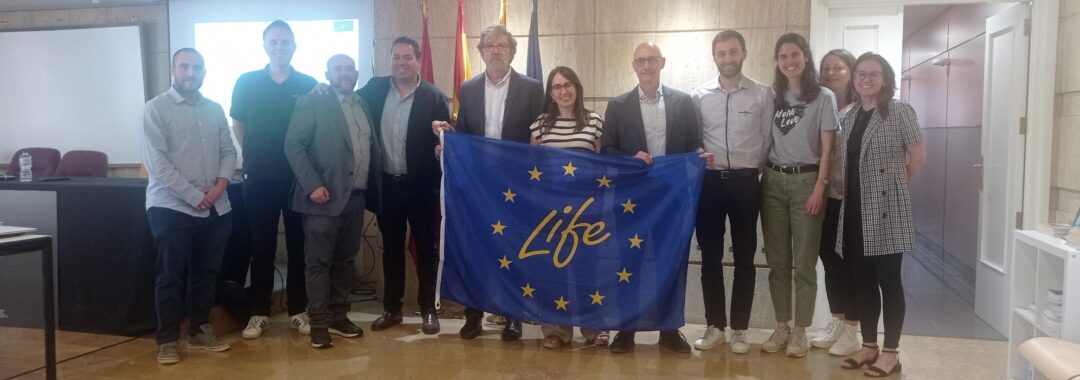Hydrogen storage enables 85% energy savings compared to traditional solutions
On May 29, the final event of the LIFE ZEROENERGYMOD project was held in Zaragoza. The event brought together experts, partner organizations, and institutional representatives to share the achievements of over three years of collaborative work focused on energy efficiency, sustainability, and autonomy in extreme environments.
During the event, the project’s journey was presented—from its initial concept to its application in social and humanitarian contexts—highlighting the role of hydrogen as a key energy vector to ensure habitability in remote locations. The agenda included technical presentations, acknowledgments, and the launch of three practical guides on sustainability, PassivHaus standards, and hydrogen technologies.
The success of the project has been made possible thanks to the collaboration of a multidisciplinary consortium composed of:
- Fundación Hidrógeno Aragón, a leader in energy innovation and responsible for developing hydrogen-based solutions.
- ARPA EMC, in charge of designing and manufacturing the self-sufficient housing modules.
- B+Haus, an architecture studio specialized in sustainable construction and PassivHaus design.
- Centro Universitario de la Defensa, which contributed its expertise in applied research and real-world validation.
The event also served to recognize the project’s excellence, which was awarded by the Official College of Quantity Surveyors and Technical Architects of Zaragoza (COAATZ), and to reflect on its future potential in new application scenarios.
LIFE ZEROENERGYMOD has demonstrated that cooperation between public and private entities, combined with technological innovation, can offer real and sustainable solutions to today’s energy challenges.
The event featured the participation of Mar Paños, Director General for Industrial Promotion and Innovation of the Government of Aragon. Attendees had the opportunity to learn not only about this award-winning project, but also about the role hydrogen and renewable energies can play in extreme environments, future construction, and social and humanitarian projects.

